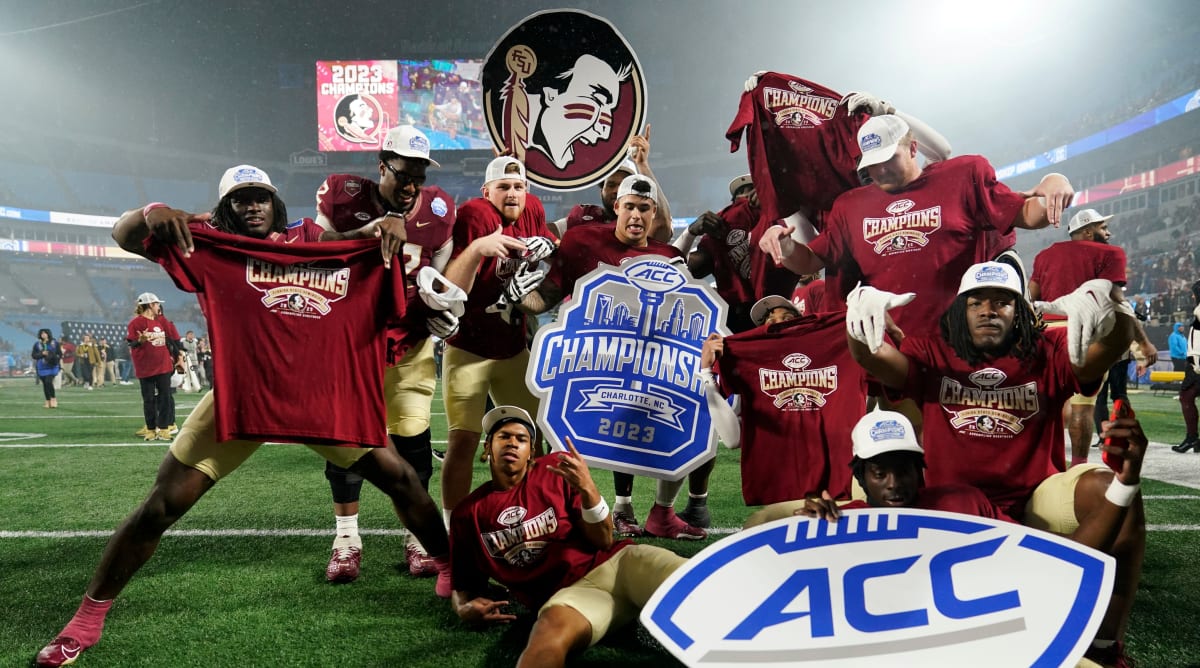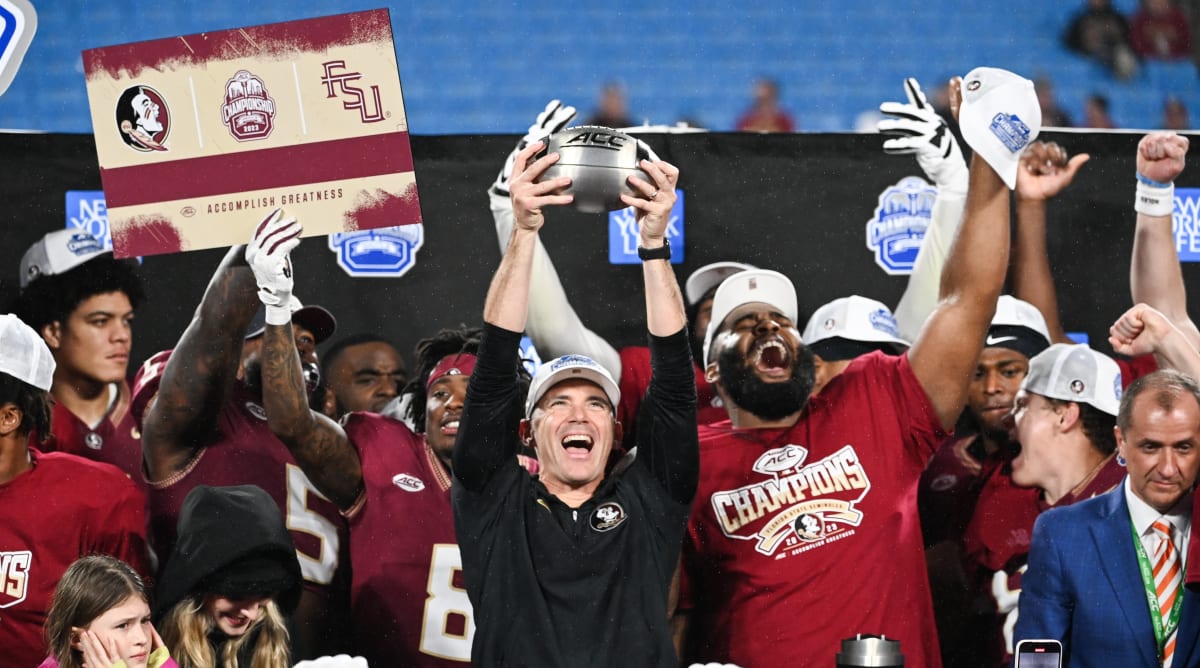Florida State is doing what it’s told you for months that it is going to do: continue to explore how to leave the ACC.
And on Friday in an emergency board of trustees meeting, the school is expected to green light legal action described by a source as “a very definitive next step on the roadmap.” But where that roadmap leads is uncertain for everyone in college sports, both inside and outside the league.
FSU is not leaving the ACC Friday morning and, functionally, couldn’t before the summer of 2025 after an August 15 deadline to leave in the summer of ‘24 came and went months ago. FSU’s motivation has been clear going back to remarks made by FSU president Richard McCollough in August of ‘22, when he said that the school would be aggressive in order to remain competitive. A board of trustees meeting in February upped the ante when athletic director Michael Alford said that “something has to change moving forward” for FSU to compete on a national level.

Erik Verduzco/AP
FSU’s goals are about gaining the flexibility to quickly pivot in order to remain at the forefront of the future of college sports, and of course, primarily football. If it’s just the Big 2 conferences (the SEC and the Big Ten) calling the shots and earning the most wealth, the Seminoles feel that they should be there. Being tied to the rest of the ACC is not palatable to them. Adding Stanford and Cal to the league and tweaking a revenue formula—both things the ACC has done in the last eight months—isn’t enough to end their saber-rattling.
At issue here is a soon to be growing revenue gap between the Big Ten and the SEC and then everyone else that will result in schools residing in the two most lucrative conferences in college sports making around $30 million more annually than what ACC schools do in base revenue distribution by the end of their media deals. In an August board of trustees meeting, former FSU quarterback and current trustee Drew Weatherford said that it’s not about if the Noles leave the ACC. In his opinion, “It’s a matter of how and when we leave. Not everyone may agree with that, but I feel really strongly about it.”
How could legal action play out? It’s possible the school seeks a declaratory judgment that would effectively void the grant of rights. The grant of rights is a document signed by all of the ACC member schools that, in theory, binds all the schools to each other. The league then negotiates a media deal on behalf of those schools. But lawyers and administrators across college sports have been itching to see a grant of rights challenged in a court of law for the first time.
The ACC could also file for its own declarative judgment in response that asks a judge to rule that the grant of rights is enforceable because FSU voluntarily signed it along with the other ACC schools.
If such a legal situation unfolds in the state of Florida, the school may get a judge more favorable to their pursuit. But litigation is costly and how a judge will rule is uncertain for both parties in even the most basic cases. This is a situation without precedent, which only ups the uncertainty.
Another thing FSU would like clarity on is exactly how much it would cost to leave the league because there isn’t a hard and fast number with the grant of rights uncertainty. The amount could just be the league’s exit fee (about $120 million) if the grant of rights is voided. That number is considered payable. However, there’s no firm answer on the number needed to break the grant of rights, which could be as high as $500 million by some estimates. A potential settlement, if it comes to that, could meet somewhere between both numbers. If it gets toward the higher end, funds from private equity could be enlisted to help the school pay the bill.

Bob Donnan/USA TODAY Sports
There is also the question of where FSU would go. Alford has said going independent is not viable, and the SEC has made clear that it will not help pay a school’s legal bills to fight a grant of rights. It’s also unclear if either the SEC or the Big Ten is ready to add and it’s even less certain if they’d take FSU alone or if they’d want someone else to come with the Seminoles. Multiple schools could certainly follow FSU’s lead and mount their own legal challenges to the grant of rights in the wake of the move by the Noles.
It’s of course difficult to ignore the timing of it all after FSU’s College Football Playoff snub, after which some connected to the program pointed to ACC commissioner Jim Phillips’s lack of preemptive stumping for the Noles to make the field when compared to SEC commissioner Greg Sankey’s appearance on College GameDay.
If FSU is getting ready to play in a College Football Playoff semifinal, is it getting ready for this emergency meeting? The answer is most likely not. But even if the Noles had played for the national championship this season, they likely would have pursued a similar course of action in early 2024.







